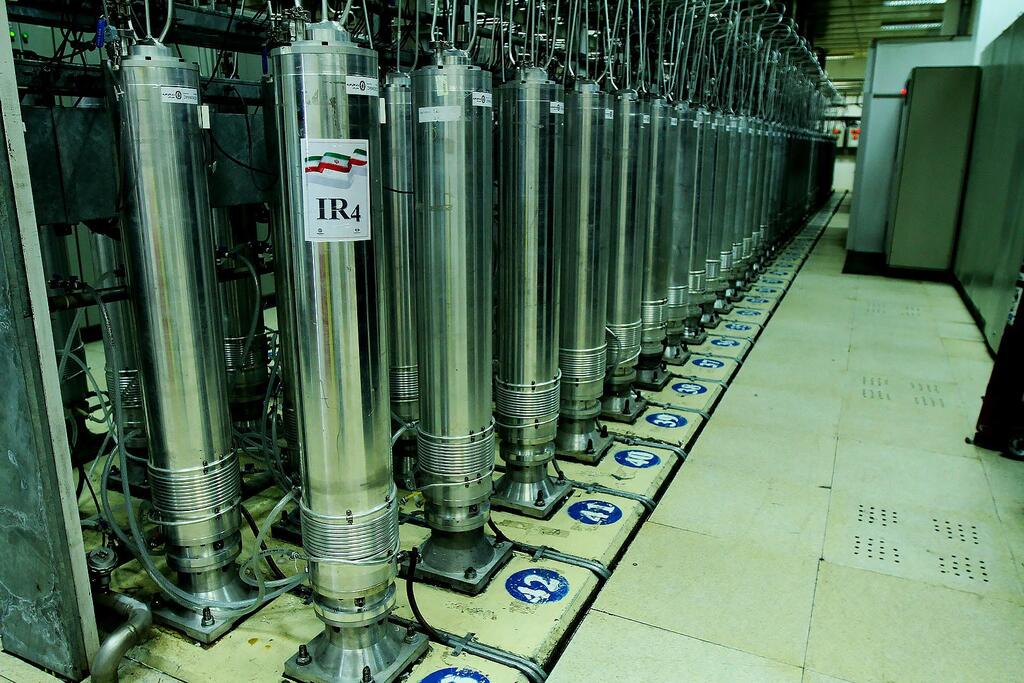Direct military action against the Iranian nuclear project is back on the table, as it was in 2011, a year also filled with altercations between Jerusalem and Tehran on the local and global stage.
In March, the Israeli Navy intercepted the cargo ship Victoria which was carrying a long list of advanced weapons that were smuggled from Iran and were allegedly bound for the militant organizations operating in the Gaza Strip.
5 View gallery
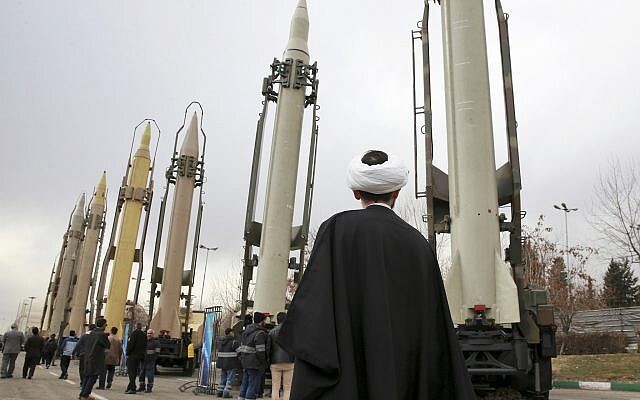

An Iranian clergyman looks at domestically built surface-to-surface missiles in Tehran
(Photo: AP)
Israel is still not at the stage of pulling the trigger in such an endeavor, but is rapidly approaching the point of no return.
If there were a stable and functioning government, with a security cabinet meeting on a regular basis, this subject would be the main issue being debated at present.
The assassination of Iranian nuclear scientist Mohsen Fakhrizadeh last month was merely a catalyst for Tehran's renewed atomic urgency, which is being dictated by the regime's conservative leaders.
Two days after the assassination, the Iranian parliament passed a series of measures essentially canceling restrictions it agreed to under the 2015 nuclear deal.
5 View gallery
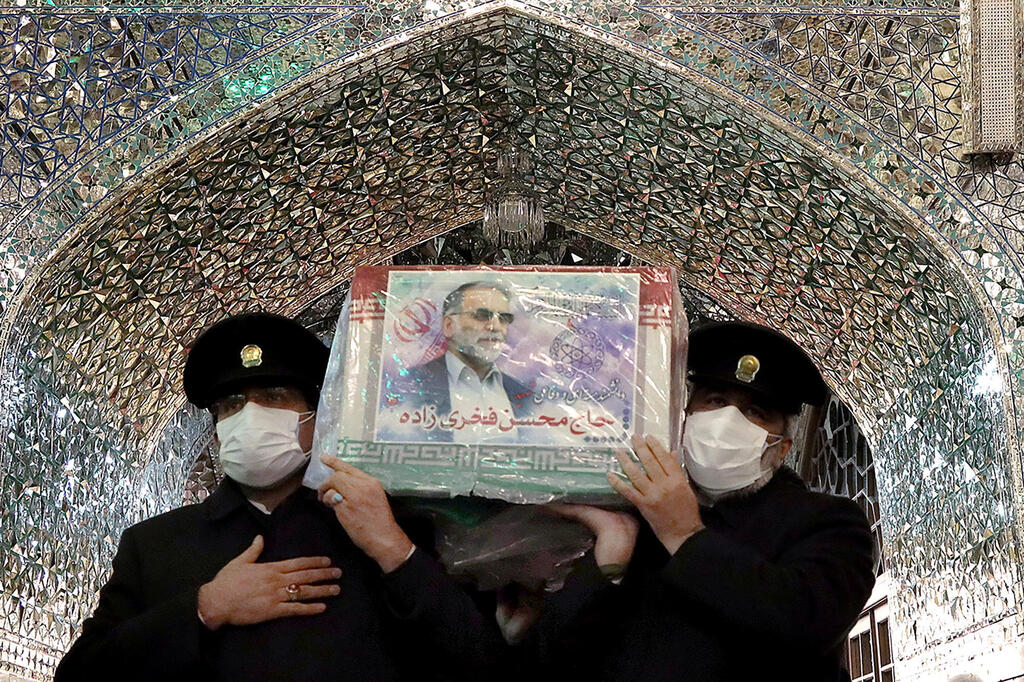

The funeral of assassinated Iranian nuclear scientist Mohsen Fakhrizadeh in Mashhad last month
(Photo: Reuters)
The new legislation, which calls for the Iranian Atomic Energy Organization to resume some of its work in the military-nuclear sphere, should have been a huge red flag for Israel.
The decisions include enrichment of uranium to 20 percent, an increase in the total amount of enriched uranium to 500kg a year and a reboot of thousands of centrifuges at the Natanz facility in the next three months.
These are all dangerous provisions that not even the greatest advocates for the nuclear deal, such as France, Germany and the UK, could stomach.
Even Russia and China, who supported Iran in the face of the Trump administration, were not pleased at all.
The resumed production of uranium rods at Isfahan by April and the reestablishment of the heavy water facility at Arak are a clear sign that Tehran is restarting its nuclear-military project.
Another measure approved by the Iranian parliament was to halt UN inspections at its nuclear facilities within two months, unless Iran is allowed to export oil freely by February.
These dangerous rulings are a direct result of the conservative victory in Iran's parliamentary elections in February of this year.
Israel has since assessed that these conservative lawmakers would not allow reform-minded candidates to run in the June presidential elections while clutching an easing of American sanctions and the promise of a shift in U.S. policy under Joe Biden.
5 View gallery
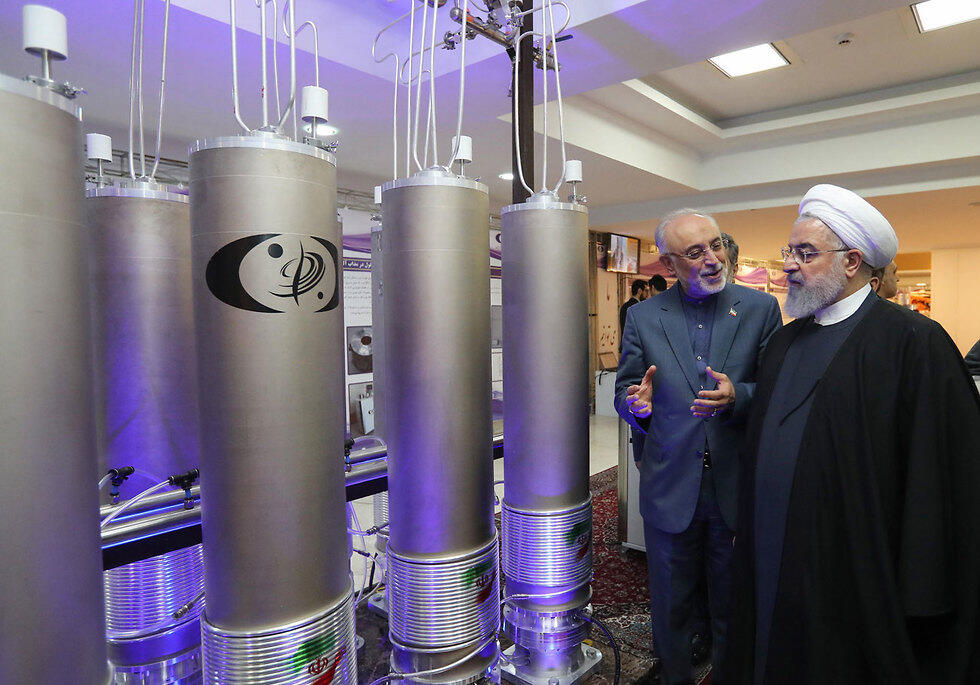

Iranian President Hassan Rouhani inspecting one of the country's nuclear facilities
(Photo: AFP)
Jerusalem also predicted that the Iranian conservatives would try to violate the 2015 deal as much as possible before any renegotiation, so that it would appear to the public to have made "drastic" concessions while the Americans conceded on Iran's ballistic missile program and regional interference.
Fakhrizadeh's death was not the main reason for this fresh bellicosity from Iran, but merely an excuse.
The days leading up to U.S. President-elect Biden taking office on Jan. 20 are crucial: there is a series of maneuvers that each could cause a serious misunderstanding with the Iranians and potentially lead to an all-out military confrontation.
5 View gallery
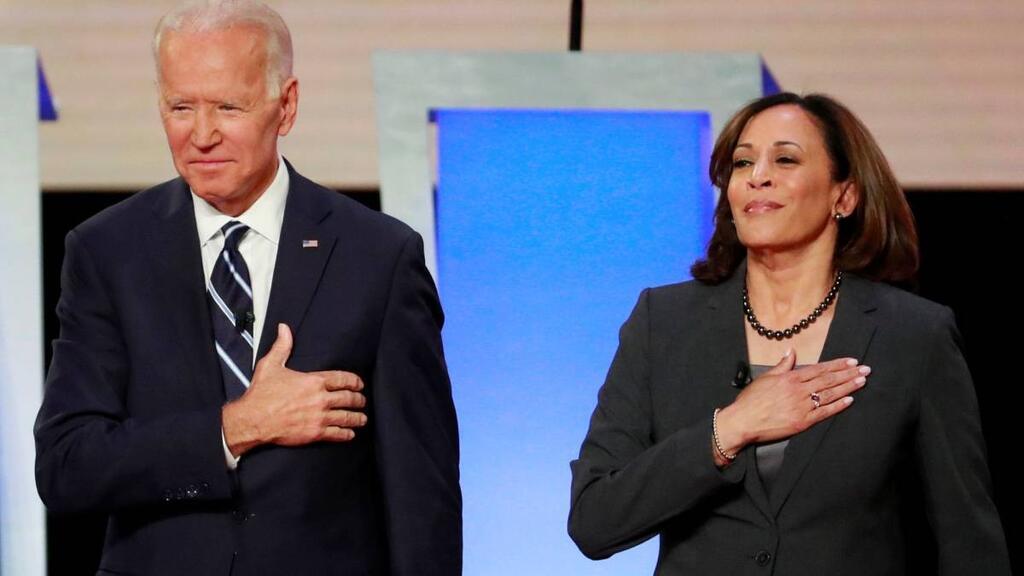

U.S. President-elect Joe Biden and Vice President-elect Kamala Harris
(Photo: Reuters)
Outgoing-U.S. President Donald Trump, in the middle of his lame-duck period, could decide to attack Iran if it follows through on the measures approved by parliament.
Israel for its part, must decide on its own red lines regarding Iran's resumption of its military-nuclear project.
Would assassinations or direct attacks on Iranian nuclear facilities be effective or is there no escape from more drastic military action?
Is the IDF capable of pulling off such military action? Because in 2011 it certainly did not believe it could.
In the meantime, the question remains what Israel is doing diplomatically. Is the Biden administration going to cooperate with Israel on its decisions with Iran just as Trump did? Is there an opportunity to find common ground with Europe for a new deal? is anyone in Jerusalem even exploring any of these options?


